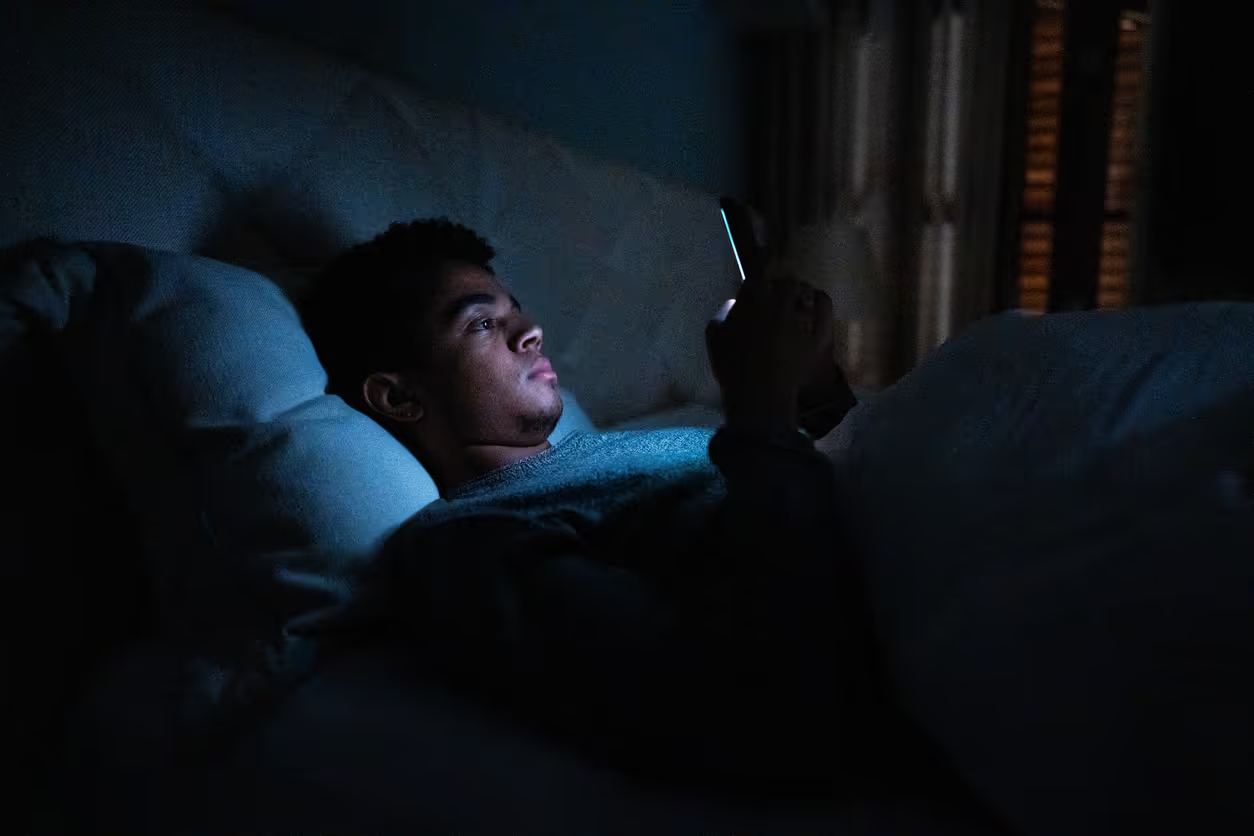Why CBT-I is recommended as the first-line treatment for insomnia

Cognitive Behavioural Therapy for Insomnia (CBT-I) is widely recognised as the gold-standard, first-line treatment for chronic insomnia.
Unlike medication, CBT-I helps people make lasting changes to the thoughts and behaviours that interfere with sleep—without relying on pills or risking side effects. If you’re exploring how to sleep better, understanding why CBT-I is prioritised can help you make an informed choice.
What is CBT-I?
CBT-I is a structured, evidence-based psychological treatment that helps individuals change unhelpful thoughts and behaviours related to sleep. Standard components include:
- Sleep restriction
- Stimulus control
- Sleep hygiene education
- Cognitive restructuring
- Relaxation techniques
CBT-I is usually delivered over 4–8 weekly sessions (in person, online, or self-guided), and has been proven effective across a wide range of medical and psychological conditions.
Why CBT-I is the first-line treatment
Endorsed by clinical guidelines
The American College of Physicians (ACP), American Academy of Sleep Medicine (AASM), and European Sleep Research Society (ESRS) all recommend CBT-I as the first-line intervention for chronic insomnia. The ACP states:
"CBT-I was found to be effective, with benefits that were sustained over time, and with fewer risks than pharmacologic therapy"
(Qaseem et al., 2016, p. 125)
Demonstrated long-term effectiveness
Research shows CBT-I leads to sustained improvements in sleep onset, maintenance, and efficiency. According to van Straten et al. (2020):
"CBT-I produced moderate to large improvements in sleep outcomes, which were maintained for up to 12 months post-treatment."
A 2022 network meta-analysis (Wu et al.) found:
"CBT-I was more effective than all medications at long-term follow-up (≥3 months), with significantly lower dropout rates and no adverse events."
Outperforms medication in key outcomes
In a randomised controlled trial, Morin et al. (2009) concluded:
"CBT-I produced greater improvements in sleep diary–assessed outcomes than medication, and those improvements were maintained over time."
Cheng et al. (2023) also found:
"Compared to pharmacological treatments, CBT-I was associated with a 20% greater improvement in sleep efficiency and a 30% greater reduction in sleep latency at six-month follow-up."
CBT-I vs. medications: Key statistics
- 70–80% of people report significant improvement with CBT-I
- Only 30–40% of patients maintain benefits after stopping sleep medications
- CBT-I has lower dropout rates and no risk of tolerance or rebound insomnia
Advantages of CBT-I for adults with sleep problems
- Drug-free and no side effects
- Works for both primary and comorbid insomnia (e.g., anxiety, depression)
- Teaches long-term skills and habits for better sleep
- Suitable for online, group, or self-paced delivery
- Endorsed by major medical bodies as the standard of care
Final thoughts
If you’ve been asking why can’t I stay asleep? or looking for natural, long-term solutions to insomnia, CBT-I is the most proven, safe, and effective option available. It's backed by decades of research and recommended as a first step—before turning to medication. Unfortunately, generic CBT-I is often academic or one-size fits all. Somna Health has 40+ years of practitioner-designed CBT-I, uniquely refined through real world training and therapy delivery. Start your 6 to 8 week journey to better sleep health today.
“CBT-I should be offered to all adults with chronic insomnia as a first-line treatment before considering medications.”
(Qaseem et al., 2016)
Frequently asked questions
Is CBT-I better than sleeping pills?
Yes—especially over time. While pills may help short term, CBT-I provides lasting results without side effects or dependency.
How long does CBT-I take to work?
Most people see improvement within 4–8 weeks, with gains continuing beyond that as new sleep habits take hold.
Is CBT-I covered by insurance or available online?
Many health plans cover CBT-I, and there are evidence-based digital options available for self-guided learning.
Can CBT-I help if I have anxiety or depression?
Yes. CBT-I is effective for people with comorbid conditions and can even support improvements in mood and stress.
What if I’ve tried everything else?
CBT-I is often the missing link. It targets the behavioural and cognitive roots of insomnia—something other approaches often overlook.
Not sure about your sleep heatlh? Get started on your path to better sleep today.
Take our Free Sleep Assessment to obtain your personalized Sleep Health Report. This report will help you identify what kind of specialist or treatment is best for you.
Schedule a meeting here to learn more about how we can help you improve your sleep health or email us at sleep@somnahealth.com.
Book a time with one of our sleep specialists to get your sleep back on track.





